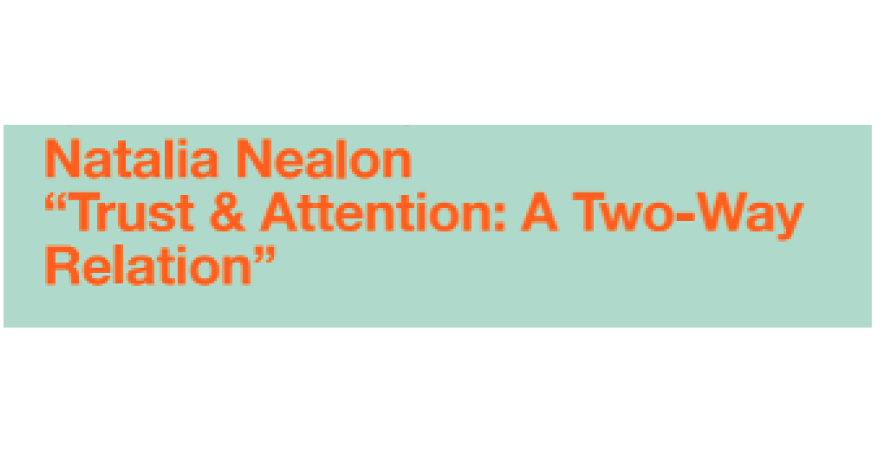
"Trust & Attention: A Two-Way Relation"
This paper explores the role of epistemic trust and its relation to attentional processes within the context of testimonial knowledge. I argue that a two-way relation exists between trust and attention. Trust functions as an implicit guidance mechanism for attention: who I trust or distrust affects what I select for and whose testimonial utterances I process. Attention will also enable trust. Hearers can attend to cues, traits, skills, and percieved reputations of speakers to determine trustworthiness or untrustworthiness. Integrated beliefs that direct attention, such as those regarding social contract and norms of assertion, may also lead to trust in such a way that gives the impression that a hearer is taking speaker's trustworthiness for granted. This last point is of particular importance, as it's relevant to the reductionist/anti-reductionist debate. I argue that the role of unconscious attention in the directing of trust offers a middle-ground approach to this debate.
